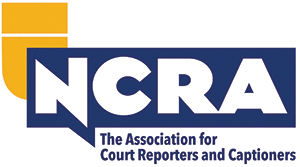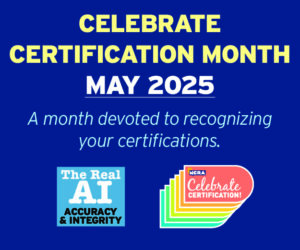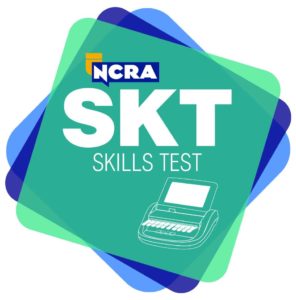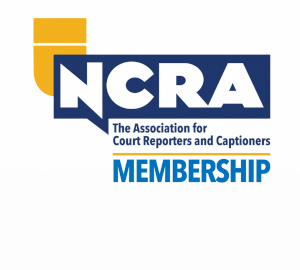NCRA Government Relations is excited to announce that we have prevailed, we have persevered, and stenography persists in the state of Indiana! On March 27, 2023, the Indiana Supreme Court issued an Order Amending the Rules of Trial Procedure (Rule 74), which now states that “Shorthand or stenography is permitted so long as the audio recording requirement of section (A) is met.” The amendment will go into effect on January 1, 2024.
Previously in January 2023 the Indiana Supreme Court Committee on Rules of Practice and Procedure attempted to amend Trial Rule 74 to prohibit recording through shorthand or stenography. NCRA Government Relations continuously contacted the Committee as to the reason or intent for the original proposed amendment, but no rationale was provided. Rather, the Committee noted that since it is a deliberative body of the Indiana Supreme Court, it is not required to answer our concerns as it is not subject to Indiana’s public record access law or Indiana’s Open Door Law.
Despite the response we received from the Committee, NCRA Government Relations launched a full-scale grassroots advocacy campaign urging NCRA members and nonmembers to submit official comments to the Indiana Supreme Court opposing the proposed amendment. During the campaign NCRA Government Relations:
- Enlisted the help of NCRA President Jason T. Meadors, FAPR, RPR, CRR, CRC, who submitted an official comment on behalf of NCRA to the Indiana Supreme Court and who sent an action alert to the NCRA membership;
- Sent three action alert emails through our VoterVoice government relations software to more than 29,000 individuals throughout the United States from NCRA’s database;
- Enlisted the help of our Indiana colleagues to keep us continuously informed and up-to-date on the situation;
- Posted on all NCRA social media forums continually throughout the public comment period;
- Worked with our Communications team to submit several articles that were featured in the JCR Weekly, which noted the situation and encouraged folks to act;
- Enlisted the necessary help of the NCRA STRONG Committee who: contacted judges, attorneys, and local bar associations; wrote an extensive and thorough opposition letter that was submitted and mailed to the Indiana Supreme Court, which was also featured in the JCR and JCR Weekly and on NCRA social media forums; and worked diligently to help Government Relations in its opposition efforts to the proposed amendment.
After working with our colleagues on the ground in Indiana, working with the NCRA STRONG Committee, and engaging in an aggressive, nationwide grassroots advocacy campaign, stenographers across the country were effective and successful in stopping this egregious attack on our profession.
Despite preventing an outright prohibition on shorthand and stenography, NCRA Government Relations is urging all members and nonmembers to continue to monitor legislation and remain vigilant in our advocacy efforts, as the Indiana Order continues to place conditions on stenography. Some restrictions include permitting a judge to arrange for audio recordings in all trials and hearings in all case types and charging the official court reporter with the supervision and operation of the audio recording device.
Jocelynn A. Moore, Esq., NCRA Director of Government Relations, called the grassroots campaign a win for stenographers.
“Although the Indiana Order is not an outright victory, we are confident that our nationwide grassroots advocacy campaign and the help of stenographers across the country are the reason why a total ban on shorthand and stenography in the State of Indiana was prevented,” Moore said. “Thanks to the help of our colleagues across the country, we were able to preserve the profession and livelihood of our friends in Indiana and ensure that the record and justice system are not adversely impacted.”
NCRA member Amy Doman, RMR, CRR, of Carmel, Ind., also called the campaign a success but emphasized the need to educate lawmakers and continue advocacy efforts.
“The stenographers in Indiana could not be more excited about the changes to the proposed amendment to Trial Rule 74 that allow our stenographers, who are employed in the courtrooms, and freelancers, who are hired by counsel to provide read backs, expedites, realtime, and rough draft services, to continue to work in courtrooms in Indiana,” Doman said. “We can enjoy this victory for a bit, but it is vital that we open the lines of communication with decision makers and take immediate action to educate them about our capabilities that far exceed those of a digital recording. This is just one of many reasons why it is crucial that each of us supports our state and national associations. The day we heard about the proposed amendment, we contacted NCRA. Within days, they prepared a response to the Indiana Supreme Court, made hundreds of phone calls, and gained the support of reporters from sea to shining sea. Soon after, the NCRA STRONG Committee wrote a letter that dissected every argument that could be made. It was truly a remarkable effort from court reporters everywhere. To everyone who helped us in any way, from the bottom of our hearts, thank you.”
NCRA President Jason T. Meadors, FAPR, RPR, CRR, CRC, extended gratitude to all who participated in NCRA’s grassroots advocacy campaign and opposed the proposed amendment.
“Cheers and a huge thank-you for the wave of colleagues who poured in their comments to oppose this outrageous attempt to outlaw stenography from its very legacy, that of the court system,” Meadors said. “A special bundle of kudos to NCRA’s Government Relations staff and our NCRA STRONG Committee, who plunged head-first into the actions and management of our response. The National Congress of State Associations did remarkable work in spreading the word through its delegation. We further appreciate the prudence of the Indiana Supreme Court in its response to the suggestions. Reporters, captioners, and videographers nationwide can congratulate themselves for our united front and this outstanding result.”
Thank you again to our Indiana colleagues, our NCRA STRONG Committee, and everyone who made calls, submitted official comments, and sent letters; when we unite and remain vigilant, we succeed!





